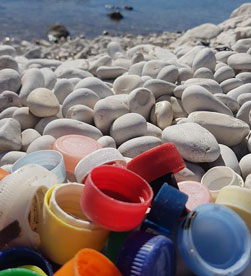For Plastic Free Croatian Islands
- Projets
- Assemble Allies and Mobilize
- For Plastic Free Croatian Islands

For Plastic Free Croatian Islands
- Association for Nature, Environment and Sustainable Development Sunce
- info@sunce-st.org
- October 2020 - September 2022
- Croatia
- https://sunce-st.org/
As a first step, Association Sunce will carry out a study to better understand the waste management system in place, the amount and type of single-use plastic being used, the level of plastic pollution and the important actors involved in the two island communities. Based on the results of this study, a “PlasticFree” action plan will be developed with the most relevant stakeholders. This plan will set out a framework for the implementation of new measures, propose relevant alternatives for single-use plastics and include the deployment of an awareness campaign for general public and the various stakeholders.
Throughout the project, the Association will strive to build local, national and regional partnerships in order to encourage the sharing of experience and the replication of the actions implemented. For that purpose, an exchange trip of good practices will be organised at the beginning of the project.


